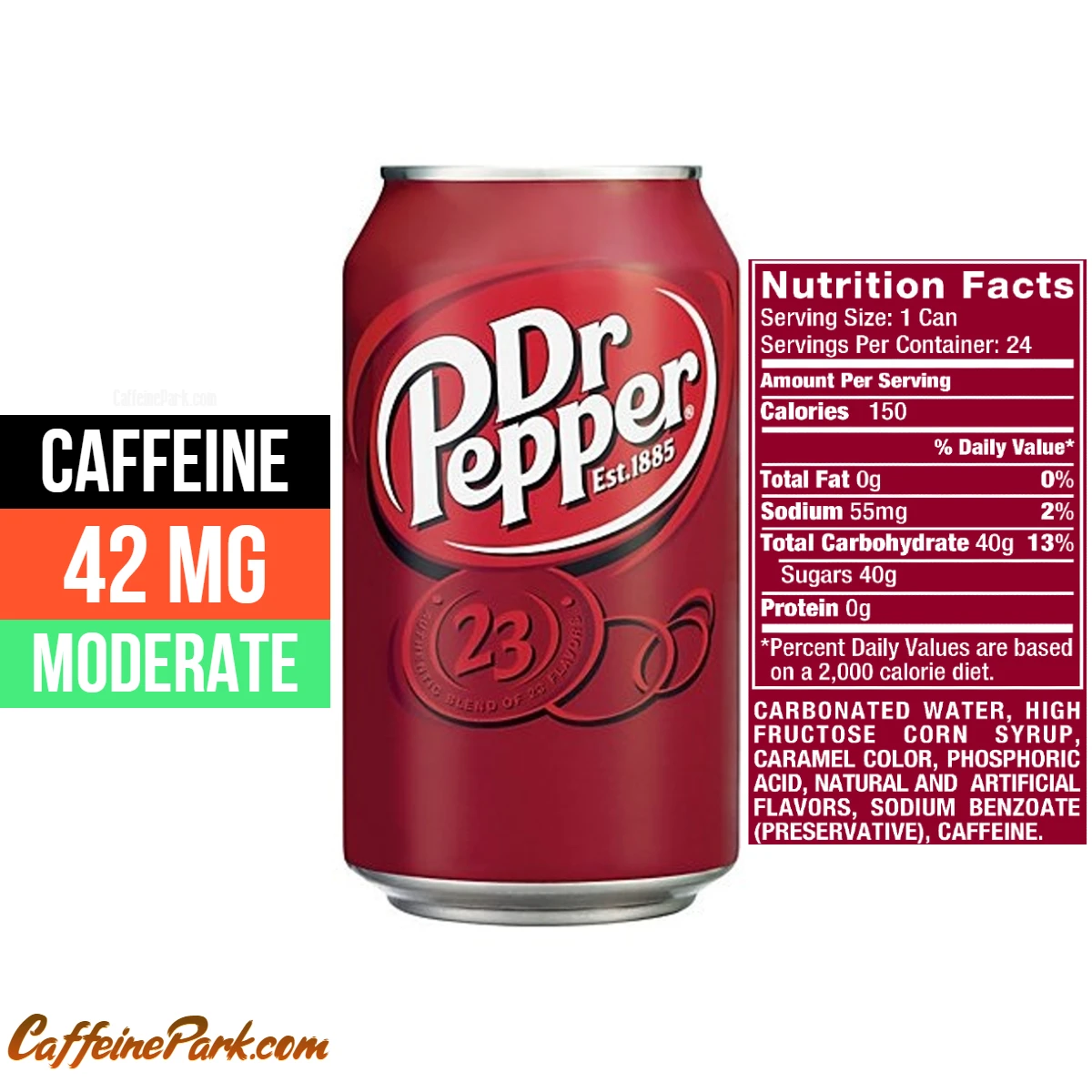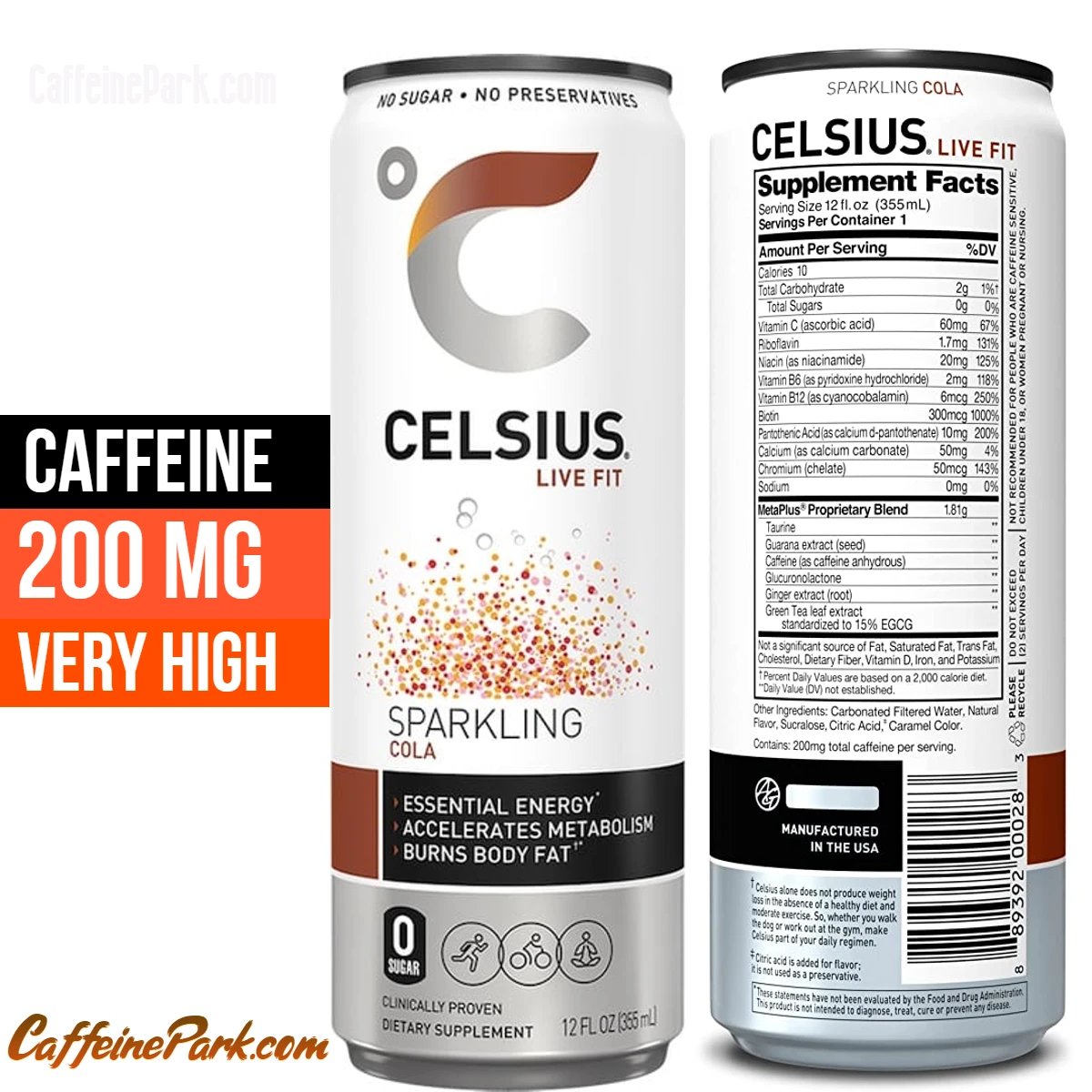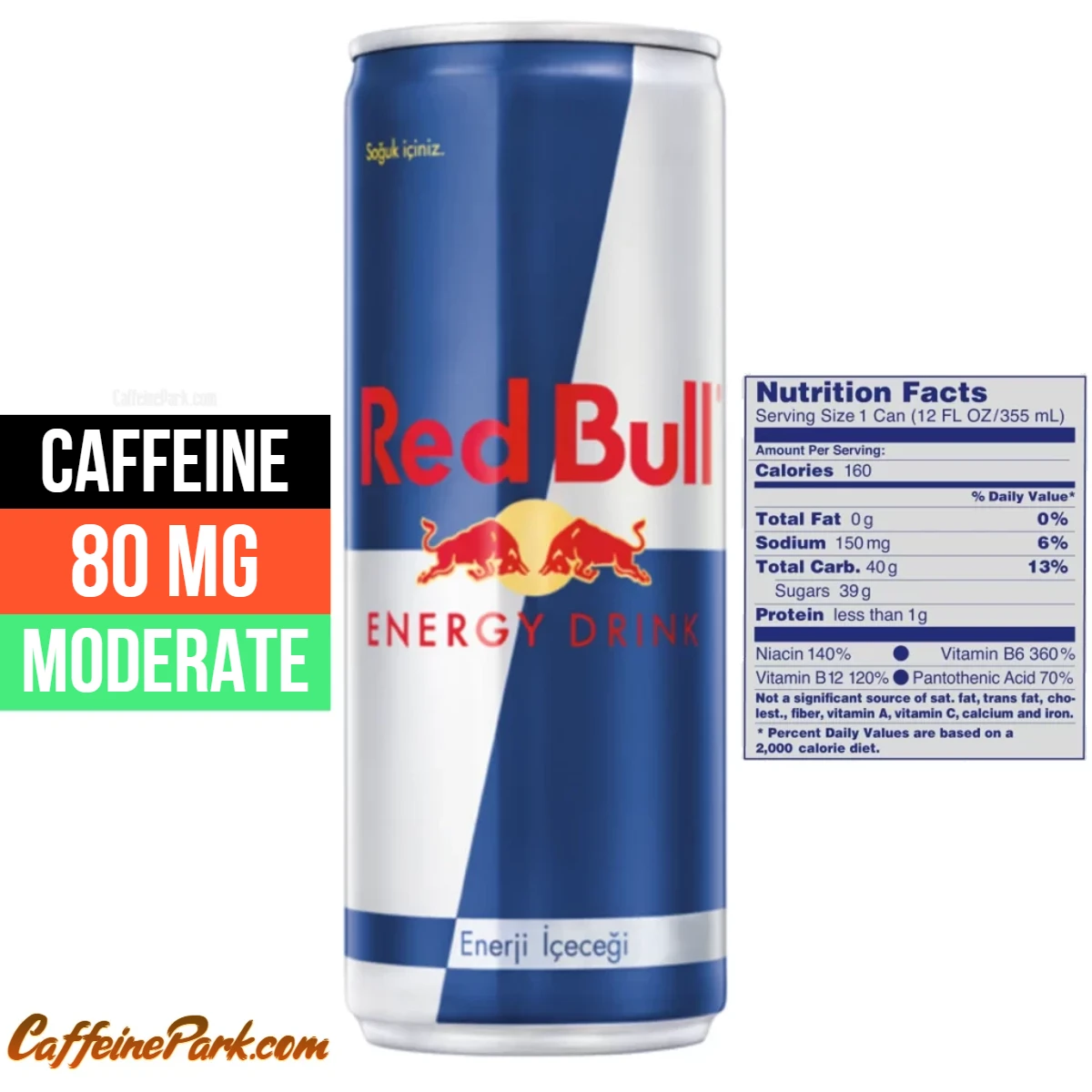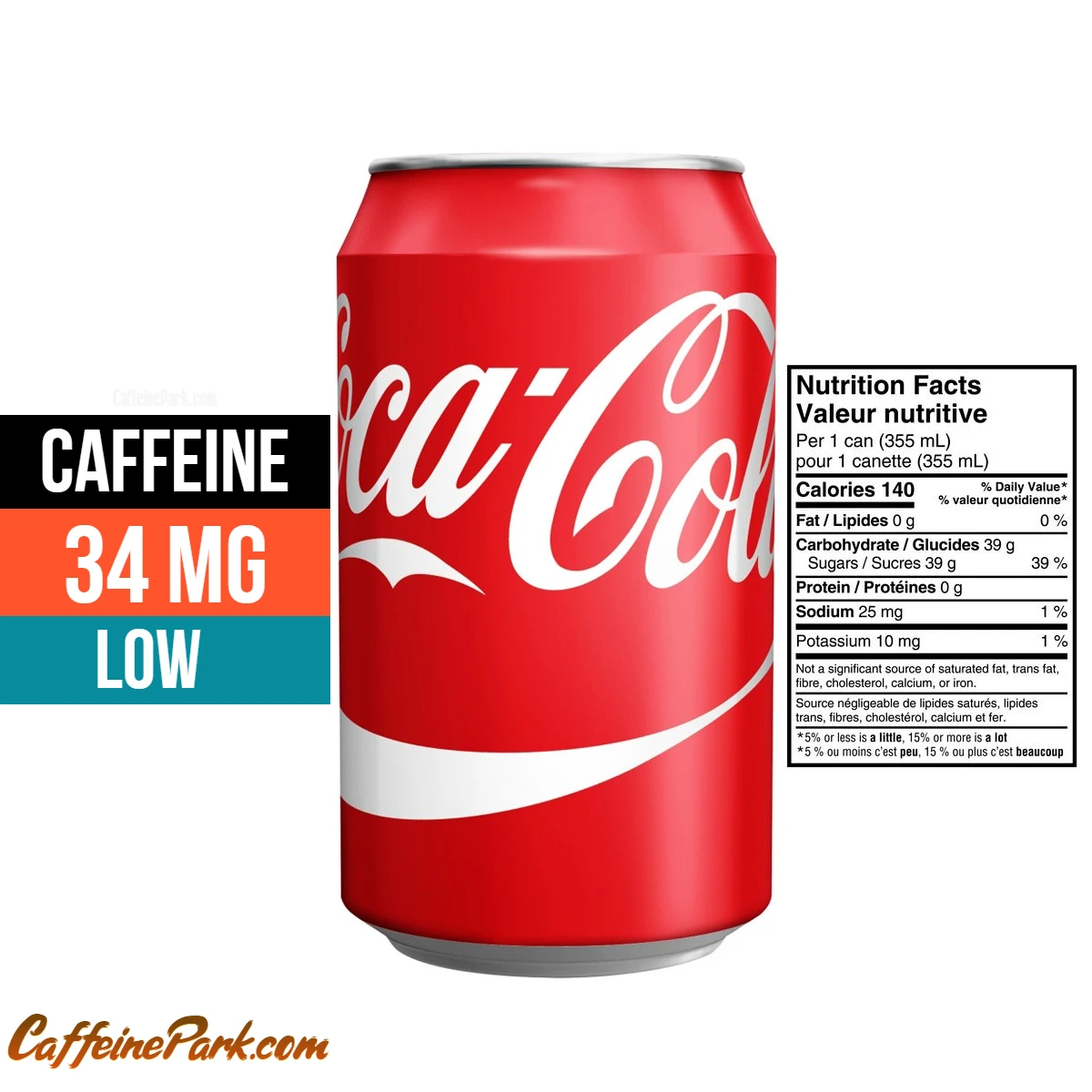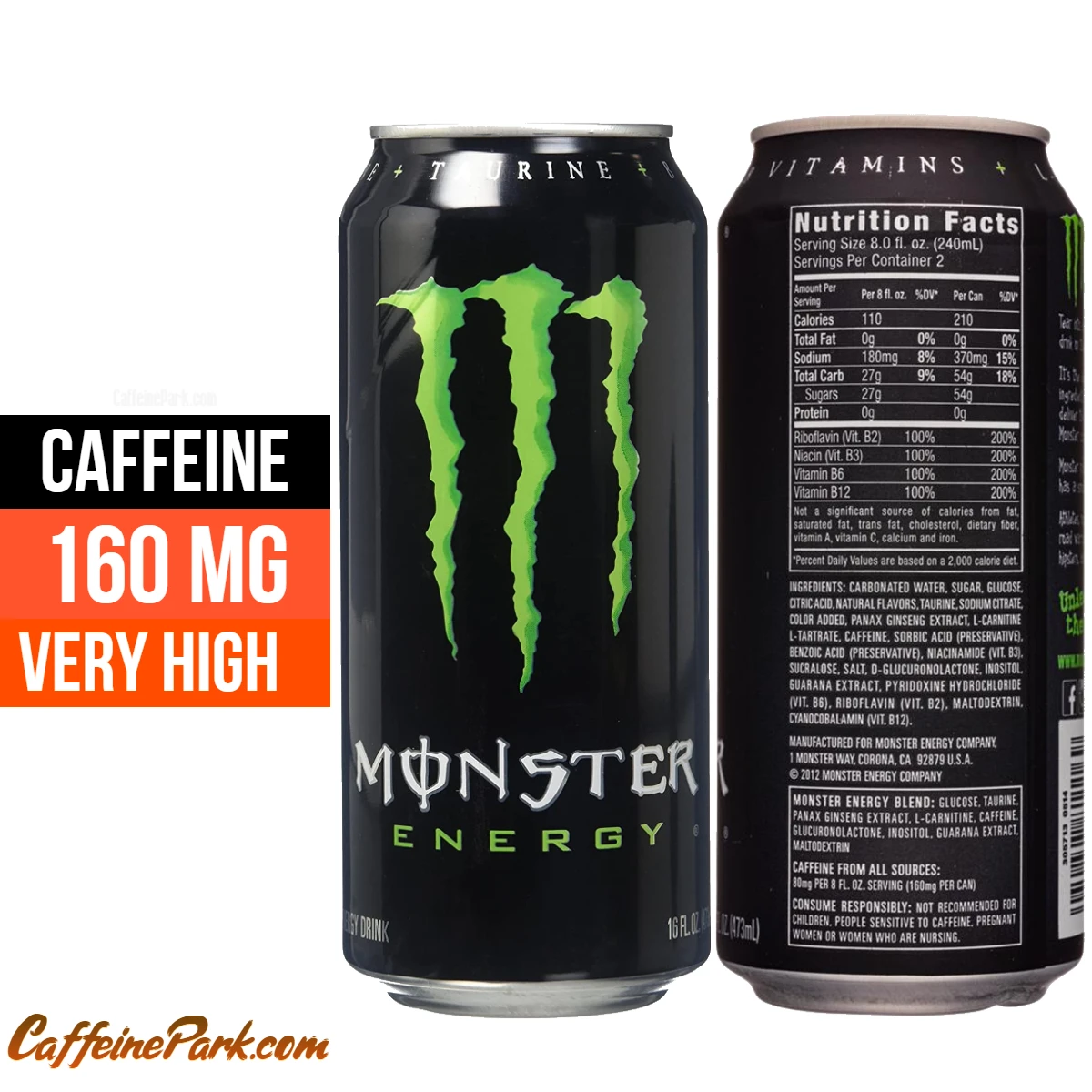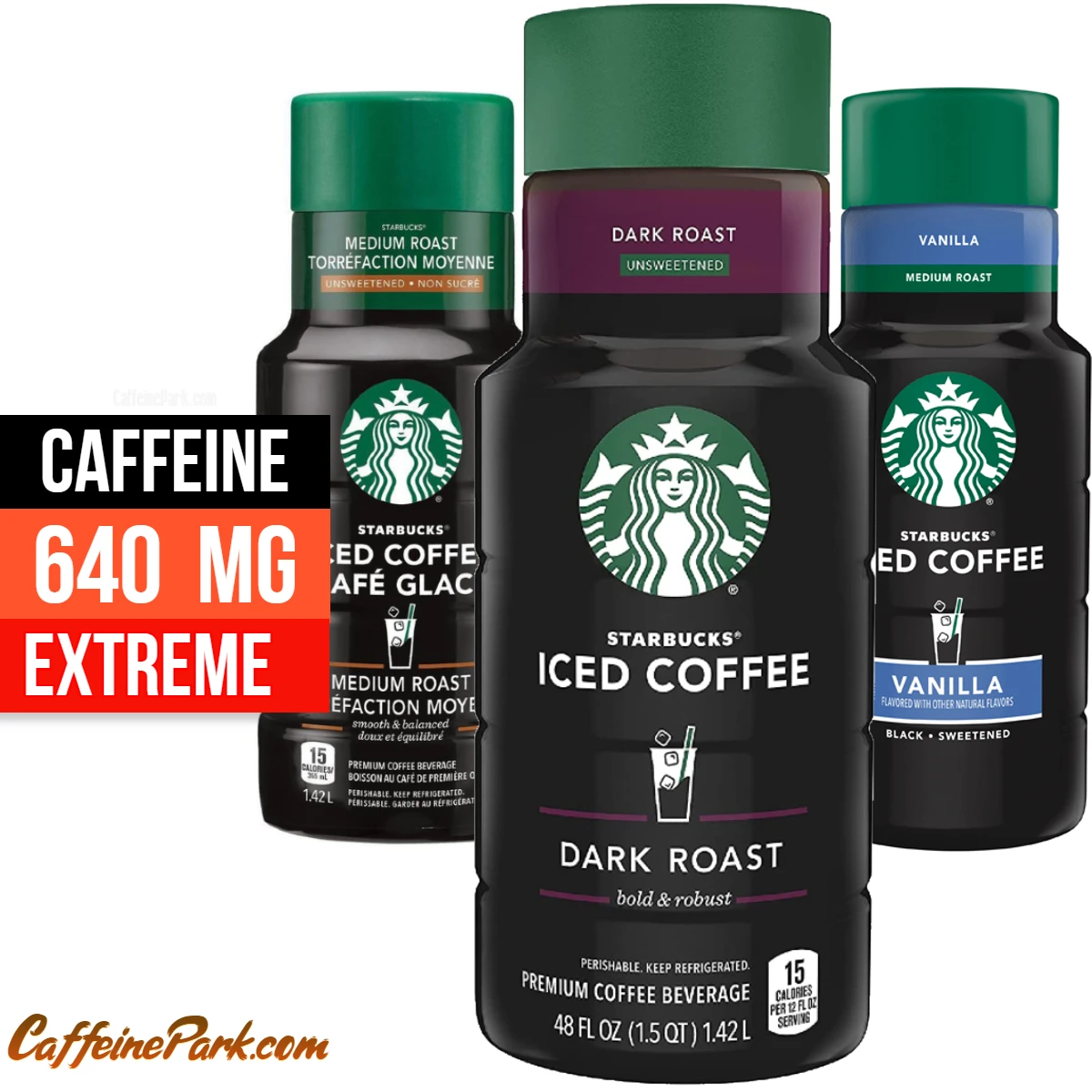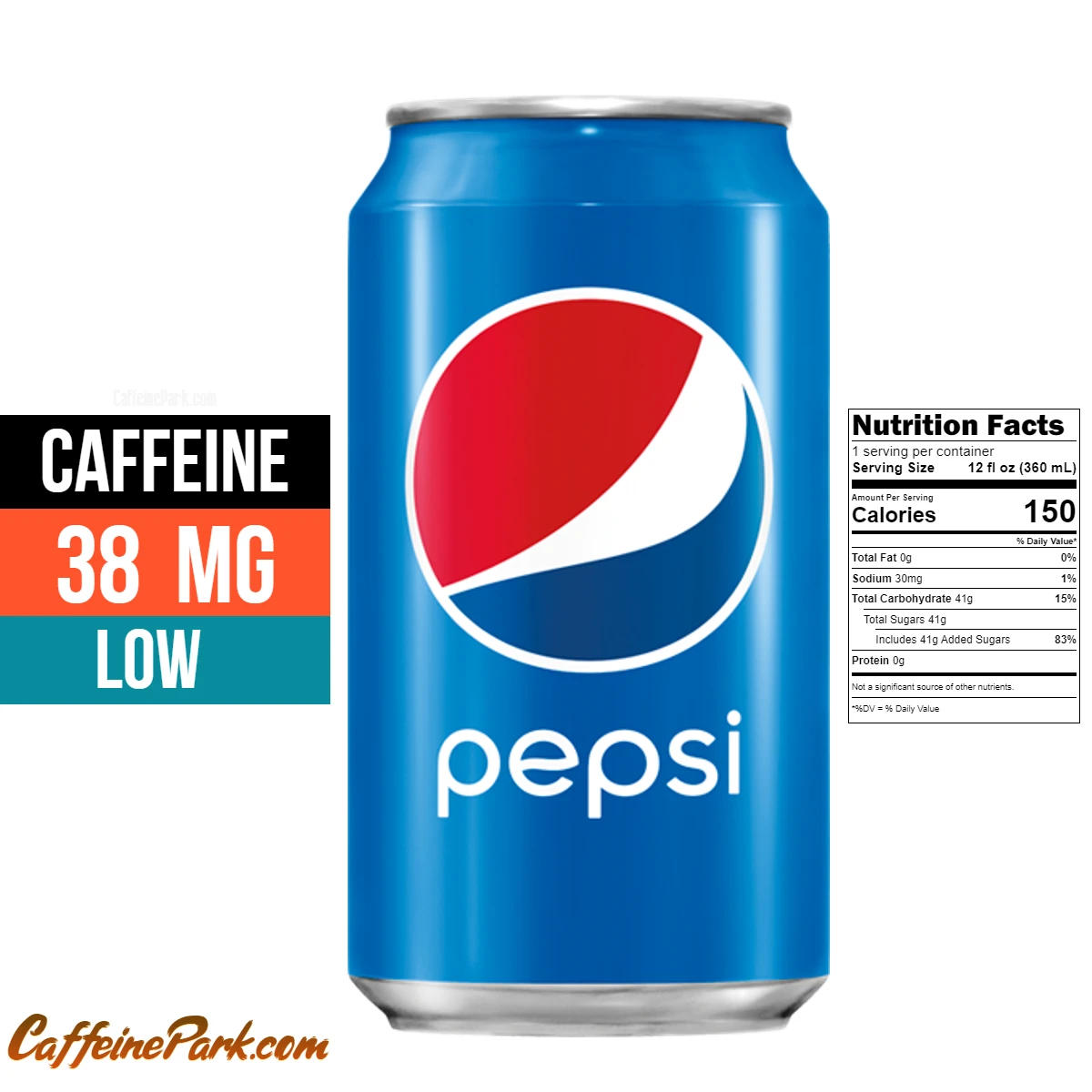
Pepsi is a caffeinated carbonated soft drink (38 mg of caffeine per 355ml) that was first created and developed in 1893 by Caleb Bradham and introduced as “Brad’s Drink.” It was renamed Pepsi-Cola in 1898 and then shortened to its current name in 1961. The drink is currently manufactured and sold by PepsiCo, a multinational food and beverage company.
Pepsi is a popular carbonated soft drink that is known for its sweet, refreshing taste. One of the key ingredients in Pepsi is caffeine, which is a stimulant that can help to increase alertness and focus.
The caffeine content of Pepsi can vary depending on the specific product and the country in which it is sold. In the United States, a 12 oz can of Pepsi contains 38 milligrams of caffeine. This is slightly less than the amount of caffeine found in a similar serving of Coca-Cola, which contains 34 mg. However, it’s worth noting that caffeine levels can vary across different countries and different sizes.
Pepsi also has other caffeine-free options for those who want to avoid caffeine or for children. Some of them are Diet Pepsi Caffeine-Free, Pepsi Zero Sugar Caffeine-Free, and Pepsi Wild Cherry Caffeine-Free.
Does Pepsi have caffeine?
Yes, Pepsi Contains 38mg of caffeine per 12 fl oz can, and a 16 fl oz can has 50mg of caffeine (10.71mg per 100ml).
| Pepsi Serving size | Caffeine Amount | Calories | Caffeine strength |
|---|---|---|---|
| 100ml | 10.7 mg | 42.3cal | LOW |
| 8.4 fl oz can | 27mg | 110cal | LOW |
| 10 fl oz can | 31mg | 130cal | LOW |
| 12 fl oz can | 38mg | 150cal | LOW |
| 16 fl oz can | 50mg | 200cal | LOW |
| 20 fl oz can | 63mg | 250cal | LOW |
| 24 fl oz can | 76mg | 300cal | MODERATE |
- Caffeine Amount: 38 mg
- Caffeine strength: LOW
- Calories: 150cal
- Serving size: 12 fl oz can
- sugar: 41 grams
Ingredients in Pepsi
- Carbonated Water
- High Fructose Corn Syrup
- Caramel Color
- Sugar
- Phosphoric Acid
- Caffeine
- Citric Acid
- Natural Flavor
It comes in many sizes, and most people say that it tastes better than Coke. A can of Pepsi contains 41 grams of sugar, while a can of Coke contains 34 grams.
Caffeine in Variations of Pepsi
| Pepsi Variations | Caffeine |
|---|---|
| Pepsi Zero Sugar | 69mg |
| Pepsi Max (UK) | 42.6mg |
| Diet Wild Cherry Pepsi | 38mg |
| Pepsi | 38mg |
| Pepsi Made With Sugar | 38mg |
| Wild Cherry Pepsi | 38mg |
| Diet Pepsi | 35mg |
| Pepsi Caffeine Free | 0mg |
| Crystal Pepsi | 63mg |
| Pepsi 1893 Cola | 34mg |
| Pepsi Cafe | 75mg |
| Pepsi Natural | 38mg |
| Pepsi Next | 32mg |
| Pepsi One | 97mg |
| Pepsi True | 32mg |
Compare Caffeine in Pepsi vs Coke
Regular Pepsi contains slightly more caffeine than regular Coke.
| Product | 7.5 fl oz | 12 fl oz | 16.9 fl oz | 20 fl oz |
|---|---|---|---|---|
| Pepsi | 24 mg | 38 mg | 53 mg | 63 mg |
| Coke | 21 mg | 34 mg | 48 mg | 57 mg |
Review
Pepsi is marketed as a sweeter alternative to Coca-Cola and is available in various flavors, including original, wild cherry, lime, and ginger. The drink is commonly served chilled and is often available at restaurants, fast food chains, vending machines, and supermarkets.
Pepsi has a long and storied history, with the brand undergoing several changes in its marketing and branding over the years. The company has also faced criticism and controversy, particularly for its advertising campaigns and impact on public health.
History of Pepsi
Pepsi has a long history dating back to the late 19th century. Caleb Bradham, a pharmacist, and businessman created the drink in 1893 and named it “Brad’s Drink.” It was originally made with carbonated water, sugar, vanilla, rare oils, and pepsin, a digestive enzyme.
Bradham believed that the drink had digestive properties and marketed it as a health beverage. He started selling the drink at his pharmacy and later expanded distribution to other stores. In 1898, Bradham renamed the drink Pepsi-Cola, with “Pepsi” derived from the word “dyspepsia,” meaning indigestion, and “Cola” referring to the kola nut, a caffeine-containing nut used as a flavoring ingredient in the drink.
Pepsi-Cola was successful in its early years and was sold in 24 states by 1902. However, the company struggled financially and was declared bankrupt in 1923. It was then purchased by Charles Guth, who owned a syrup manufacturing company and reorganized it into the Pepsi-Cola Company.
Under Guth’s leadership, the company underwent significant expansion and started using modern marketing techniques. In the 1930s, Pepsi introduced the “Twice as Much for a Nickel” campaign, which highlighted that a Pepsi cost the same as a Coke but was larger in volume. This slogan was successful and helped increase the popularity of the brand.
Pepsi continued to expand and innovate in the following decades, introducing new flavors and packaging, such as the introduction of Diet Pepsi in 1964 and the iconic red, white, and blue branding in the 1970s. In the 1980s, PepsiCo, the parent company of Pepsi, diversified its product portfolio by acquiring other food and beverage brands, such as Frito-Lay and Tropicana.
Taste and Flavors
Pepsi is known for its sweet, carbonated taste and is often described as being slightly sweeter and fruitier than its main rival, Coca-Cola. The original flavor of Pepsi is a blend of carbonated water, sugar, caramel color, and natural flavors, including the kola nut.
In addition to the original flavor, Pepsi is also available in a variety of other flavors, including:
- Wild Cherry Pepsi: a cherry-flavored version of the original Pepsi
- Lime Pepsi: a lime-flavored version of the original Pepsi
- Diet Pepsi: a low-calorie version of the original Pepsi made with artificial sweeteners
- Pepsi Max: a low-calorie, caffeinated version of Pepsi with a stronger flavor
- Ginger Pepsi: a ginger-flavored version of the original Pepsi
Pepsi also offers limited edition flavors and regional flavors in some markets.
Ingredients and Nutrition Facts
Pepsi is made with carbonated water, high fructose corn syrup, caramel color, sugar, phosphoric acid, caffeine, citric acid, and natural flavors. The exact formulation and ingredients may vary slightly depending on the country and market.
One 12 fl oz (355 mL) serving of Pepsi contains 150 calories, 41 grams of carbohydrates (including 41 grams of sugar), and 38 mg of caffeine. The drink also contains small amounts of vitamins and minerals, including niacin, vitamin C, and magnesium.
It is worth noting that the high sugar content and added sweeteners in Pepsi may contribute to dental cavities and may have negative effects on overall health if consumed in excess. The World Health Organization recommends limiting the intake of added sugars to less than 10% of daily energy intake.
Packaging and Availability
Pepsi is widely available and can be found in restaurants, fast food chains, vending machines, and supermarkets in various packaging options.
The drink is primarily sold in 12 fl oz (355 mL) cans and 20 fl oz (590 mL) bottles, although it is also available in 2-liter bottles and in multipacks of cans or bottles. In some markets, Pepsi is also sold in larger sizes, such as 24 fl oz (710 mL) bottles and 1 gallon (3.8 L) jugs.
Pepsi is also available in fountain form at many restaurants and fast food chains, where it can be ordered as a standalone drink or as part of a combo meal.
Health Concerns and Controversy
Like many other sugary drinks, Pepsi has been the subject of controversy and criticism regarding its potential negative effects on public health. The high sugar content in the drink has been linked to an increased risk of obesity, dental cavities, and other health problems.
In response to these concerns, PepsiCo has introduced several lower-calorie and artificially sweetened versions of the drink, such as Diet Pepsi and Pepsi Max. However, these versions of the drink have also faced criticism, as the long-term effects of artificial sweeteners on health are not fully understood and may potentially have negative consequences.
In addition to health concerns, Pepsi has also faced criticism for its advertising campaigns and marketing practices. The company has been accused of targeting children and young people with its marketing and promoting an unhealthy lifestyle. Pepsi has also faced backlash for some of its controversial ads, including a commercial featuring Kendall Jenner that was widely criticized for being tone-deaf and lacking in cultural sensitivity.
Other Pepsi Products
In addition to its carbonated soft drinks, PepsiCo also offers a variety of other products under the Pepsi brand. Some of these include:
- PepsiCo snacks: PepsiCo owns a number of snack brands, including Lay’s, Cheetos, and Doritos, which are sold under the Pepsi brand in some markets.
- Mountain Dew: Mountain Dew is a popular citrus-flavored soft drink that was originally created and developed by PepsiCo. It is known for its bright green color and distinctive flavor.
- Aquafina: Aquafina is a brand of purified drinking water that is owned by PepsiCo. It is available in various sizes and packaging options, including individual bottles, multipacks, and larger jugs.
- Starbucks Frappuccino: In some markets, PepsiCo has an agreement with Starbucks to distribute and sell the coffee chain’s Frappuccino drinks. These drinks are sold in bottles and cans under the Starbucks brand and are available in a variety of flavors.
International Availability
Pepsi is a global brand and is available in many countries around the world. The drink is particularly popular in the United States, where it has a strong presence and is widely consumed. However, it is also available in other regions, including Europe, Latin America, and Asia.
In some international markets, Pepsi may be known by different names and may have slightly different ingredients or formulations to suit local tastes. For example, in some Asian countries, Pepsi is known as “Mirinda” and is available in flavors such as orange and pink guava. In some European countries, Pepsi is available in a zero-sugar version.
Social Responsibility and Sustainability
PepsiCo has a global initiative called “Performance with Purpose,” which aims to drive sustainable growth and make a positive impact on the communities where the company operates. As part of this initiative, PepsiCo has made a number of commitments in the areas of health, environmental sustainability, and social responsibility.
For example, PepsiCo has committed to reducing its use of virgin plastic in its packaging and increasing the use of recycled content. The company has also set a goal to reduce greenhouse gas emissions across its value chain by 20% by 2030. In the area of social responsibility, PepsiCo has pledged to empower women and promote diversity and inclusion in the workplace.
Comparison to Coca-Cola
Pepsi and Coca-Cola are two of the most well-known and widely consumed soft drinks in the world and are often considered rivals. Both drinks are carbonated and sweetened with sugar or high fructose corn syrup, although the exact formulation and ingredients of each drink differ slightly.
Pepsi is generally considered to be sweeter and fruitier than Coca-Cola, with a stronger flavor profile. Coca-Cola, on the other hand, is often described as having a smoother and slightly more mellow taste.
Both Pepsi and Coca-Cola have loyal followings and have been engaged in various marketing and advertising campaigns over the years to promote their respective brands. Many people have strong preferences for one brand over the other, although both are popular and widely consumed.
Conclusion
Pepsi is a well-known and widely consumed carbonated soft drink that is available in various flavors and packaging options. The brand has a long history and has undergone several changes in its marketing and branding over the years. While Pepsi has faced criticism and controversy, particularly in regard to its impact on public health and advertising campaigns, the company has also made efforts to address these issues and promote sustainability and social responsibility.
FAQs about Pepsi caffeine
Is Pepsi Caffeine-Free?
Pepsi is not caffeine-free. The original formula of Pepsi contains caffeine, which is listed as an ingredient on the product label. However, PepsiCo also offers a caffeine-free version of the drink called “Pepsi Zero Sugar,” which is sweetened with artificial sweeteners and does not contain caffeine.
How Much Caffeine is in a Glass of Pepsi?
The amount of caffeine in a glass of Pepsi will depend on the size of the glass and the specific product being served. A 12 fl oz (355 mL) serving of regular Pepsi typically contains around 33-38 mg of caffeine. If the glass is larger, the total amount of caffeine will be proportionally higher. For example, a 20 fl oz (590 mL) serving of regular Pepsi contains around 50-60 mg of caffeine.
Is Caffeine in Pepsi Harmful?
Caffeine is a psychoactive substance that can produce a variety of effects on the body and the brain. It is generally considered to be safe for most people when consumed in moderate amounts. However, consuming large amounts of caffeine can have negative side effects, including insomnia, jitters, and an increased heart rate. Caffeine is also a diuretic, which means that it can increase urine production and may lead to dehydration if consumed in large quantities.
While the long-term effects of caffeine on health are not fully understood, some studies have suggested that moderate caffeine consumption may have some potential health benefits, such as a reduced risk of certain types of cancer and a lower risk of Parkinson’s disease and Alzheimer’s disease. However, consuming large amounts of caffeine or consuming caffeine on a regular basis may have negative consequences. Some research has linked high caffeine intake to an increased risk of heart disease, bone loss, and fertility problems. It is also worth noting that caffeine is a stimulant and can interfere with sleep, which is important for overall health and well-being.
Can Children and Adolescents Drink Pepsi?
Caffeine is not recommended for children and adolescents, as their bodies may be more sensitive to the effects of the stimulant. The American Academy of Pediatrics recommends that children and adolescents limit their caffeine intake to no more than 100 mg per day. This is equivalent to about one 12 fl oz (355 mL) serving of Pepsi or one 8 fl oz (240 mL) serving of coffee. It is important for parents to monitor their children’s caffeine intake and encourage them to choose caffeine-free beverages whenever possible.
Is Pepsi Bad for Your Health?
Like many other sugary drinks, Pepsi has been the subject of controversy and criticism regarding its potential negative effects on public health. The high sugar content in the drink has been linked to an increased risk of obesity, dental cavities, and other health problems.
In response to these concerns, PepsiCo has introduced several lower-calorie and artificially sweetened versions of the drink, such as Diet Pepsi and Pepsi Max. However, these versions of the drink have also faced criticism, as the long-term effects of artificial sweeteners on health are not fully understood and may potentially have negative consequences. It is worth noting that artificially sweetened drinks are not a healthy alternative to sugary drinks and should be consumed in moderation.
In addition to health concerns, Pepsi has also faced criticism for its advertising campaigns and marketing practices. The company has been accused of targeting children and young people with its marketing and promoting an unhealthy lifestyle. Pepsi has also faced backlash for some of its controversial ads, including a commercial featuring Kendall Jenner that was widely criticized for being tone-deaf and lacking in cultural sensitivity.
Overall, it is important to consume all foods and beverages, including sugary drinks like Pepsi, in moderation as part of a balanced diet. It is also important to be mindful of the potential negative effects that these types of drinks can have on health and to consider choosing healthier alternatives, such as water or unsweetened beverages.
Why does Pepsi have caffeine?
Cola contains caffeine as an ingredient, but also because it helps the carbonated drink keep longer. Caffeine helps the body absorb sugar more easily, so it helps prevent tooth decay. Also, the caffeine itself improves your mood and increases alertness.
Read More:
